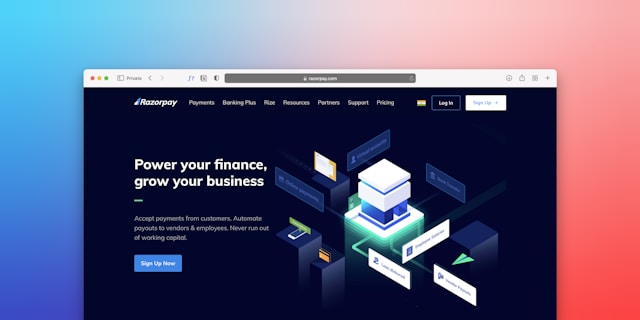Hey there, fellow web entrepreneurs! Anya here. You know, sometimes I feel like I’m constantly bombarded with new software solutions promising to revolutionize my business. But every now and then, there’s a tool that genuinely lives up to the hype. Today, let’s talk about one of those: Customer Relationship Management (CRM) systems.
Now, I know what you might be thinking: “CRM? Isn’t that just for big corporations with massive sales teams?” Well, not anymore! For web businesses of all sizes, from solo startups to rapidly growing ventures, CRM can be a total game-changer. Trust me, I’ve seen it happen.
What Exactly IS CRM, Anyway?
At its core, CRM is all about managing your interactions with customers and potential customers. It’s about building strong, lasting relationships that drive loyalty and, ultimately, revenue. Think of it as a central hub for all your customer-related data and activities.
It’s more than just a fancy address book. I actually used to use Excel for that (shudder). A good CRM system brings together information from various sources – your website, social media, email marketing campaigns – to give you a 360-degree view of each customer. This allows you to understand their needs, preferences, and pain points, enabling you to personalize your interactions and provide exceptional service.
Why CRM Matters for Web Businesses: The Nitty-Gritty
Alright, let’s get down to brass tacks. What are the actual benefits of using a CRM system for your web business? I’ve seen firsthand how it can transform a business, and I’m excited to share some of the key advantages:
- Boosted Sales: A CRM helps your sales team (or you, if you’re a one-person show!) track leads, manage opportunities, and close deals more efficiently. By understanding where each prospect is in the sales funnel, you can tailor your approach and increase your closing rates.
- Improved Customer Service: Imagine having all the information you need about a customer right at your fingertips. With a CRM, you can quickly access their past interactions, purchase history, and any outstanding issues. This allows you to provide faster, more personalized support, leading to happier customers and higher retention rates.
- Streamlined Marketing Efforts: CRM systems can help you segment your audience, personalize your marketing messages, and track the performance of your campaigns. By understanding which marketing efforts are driving the best results, you can optimize your spending and maximize your ROI.
- Enhanced Team Collaboration: A CRM provides a central platform for your team to collaborate on customer-related activities. Everyone has access to the same information, ensuring that everyone is on the same page and working towards the same goals.
- Data-Driven Decision Making: CRM systems collect a wealth of data about your customers and your business processes. By analyzing this data, you can identify trends, uncover insights, and make more informed decisions about everything from product development to marketing strategy.
And honestly, those are just the tip of the iceberg. I remember one time when the CRM data helped us identify a major drop-off point in our checkout process. We fixed it, and our conversion rates skyrocketed! Small changes, big impact, you know?
Choosing the Right CRM: It’s Not One-Size-Fits-All
So, you’re convinced that CRM is essential for your web business. Great! But with so many options available, how do you choose the right one? It’s like trying to pick the perfect avocado at the grocery store – overwhelming!
Here’s my advice:
- Consider Your Needs: What are your specific goals and challenges? What features are most important to you? Make a list of your must-haves and nice-to-haves.
- Think About Scalability: Choose a CRM that can grow with your business. You don’t want to outgrow your system in a year or two.
- Evaluate the User Interface: Is the CRM easy to use and intuitive? If your team finds it clunky and confusing, they won’t use it.
- Read Reviews and Get Recommendations: See what other web entrepreneurs are saying about different CRM systems. Ask for recommendations from your network.
- Take Advantage of Free Trials: Many CRM providers offer free trials. This is a great way to test out different systems and see which one works best for you.
Implementing CRM Best Practices: Make It Work for YOU
Choosing the right CRM is only half the battle. To get the most out of your system, you need to implement CRM best practices.
- Define Clear Goals: What do you want to achieve with your CRM? Set specific, measurable, achievable, relevant, and time-bound (SMART) goals.
- Train Your Team: Make sure your team knows how to use the CRM effectively. Provide training and ongoing support.
- Keep Your Data Clean: Regularly clean and update your data to ensure accuracy. Garbage in, garbage out, as they say.
- Automate Where Possible: Use automation features to streamline tasks and improve efficiency.
- Monitor and Analyze Your Results: Track your progress towards your goals. Identify areas for improvement and make adjustments as needed.
Personalizing Marketing with CRM Data: The Secret Sauce
One of the most powerful benefits of CRM is the ability to personalize your marketing efforts. By leveraging the data you collect in your CRM, you can create targeted campaigns that resonate with your audience.
For example:
- Segment your audience based on demographics, interests, and purchase history.
- Personalize email subject lines and content.
- Create targeted landing pages.
- Offer personalized product recommendations.
Look, I’m not going to lie, getting CRM right takes work. It’s not a magic bullet. But by investing the time and effort to choose the right system, implement best practices, and personalize your marketing efforts, you can unlock significant benefits for your web business.
So, what are you waiting for? Start exploring your CRM options today! And don’t hesitate to reach out if you have any questions – I’m always happy to help.
Until next time, keep innovating!
